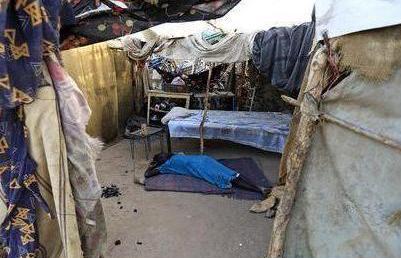UN pledges $10 million for South Sudanese refugees in Sudan
October 22, 2014 (KHARTOUM) – The United Nations high commissioner for refugees Antonio Guterres and UN secretary-general’s humanitarian envoy, Abdullah al Matouq, have launched an appeal for help to Sudan describing the humanitarian situation in the country as dire.

Guterres appealed to the donor community for further financial support to ensure they have the means to respond to the continued influx of South Sudanese refugees, emphasising the need for adequate planning for the increased numbers, particularly by allocating additional land for refugee sites and ensuring proper site planning.
“The refugees who have fled to Sudan from South Sudan are in an utterly desperate situation. They have lost their homes, their livelihoods and their loved ones,” he said.
Guterres further underscored the need for the South Sudanese to be afforded a status grounded in a recognised legal framework that would give effect to the expressed government position that South Sudanese are brothers and sisters and should be accorded access to rights and adequate assistance in Sudan.
He said they all agreed to increase financial support for the Sudanese government, pledging to offer $10 million for South Sudanese refugees in the camps.
On 15 October, the UN said that over 100,000 refugees have arrived in Sudan since the outbreak of violence in South Sudan in mid-December last year, with nearly 1,000 new arrivals every week.
The UN commissioner for refugees further pointed that some major states, which he did not name, wrongfully hurt Sudan by issuing false reports and imposing unjustified sanctions, calling upon these states to apologize for Sudan.
He underscored that the UN High Commission for Refuges does not link humanitarian aid to any political agendas, saying they do not mix between politics and humanitarian affairs.
Al-Matouq for his part said the humanitarian challenges in Sudan are immense, noting we all must ensure that Sudan remains in the mind of those who can help make a difference.
He pointed out that the number of people in need of humanitarian assistance in Sudan has risen by 800,000 since the start of 2014 (as of July 2014).
“This is in addition to some 6.1 million people who required humanitarian assistance at the beginning of 2014,” he said.
Al-Matouq lauded the Sudanese government decision to treat refugees from South Sudan as if they were Sudanese citizens, noting that such gesture would promote aid efforts.
The Sudanese humanitarian aid commissioner, Ahmed Adam, pointed to presence of thousands of South Sudanese in Khartoum, announcing formation of a committee to determine their actual numbers and give them the choice either to stay in the capital or go to other areas.
The United Nations Office for the Coordination of Humanitarian Affairs (OCHA) said in its weekly bulletin that UN Refugee Agency (UNHCR) reports show that the influx of refugees from South Sudan to Sudan continues and over 2,000 new refugees were registered over the past week.
“This brings the total number of South Sudanese refugees to 102,695 people since December 2013. This means that, on average, over 10,000 people have arrived from South Sudan each month,” it reads.
OCHA predicted there may be over 120,000 refugees from South Sudan in Sudan by mid-December 2014 if this trend continues.
(ST)
